Business
FG proposes N11trn loan for 2023 budget — to exceed borrowing limit
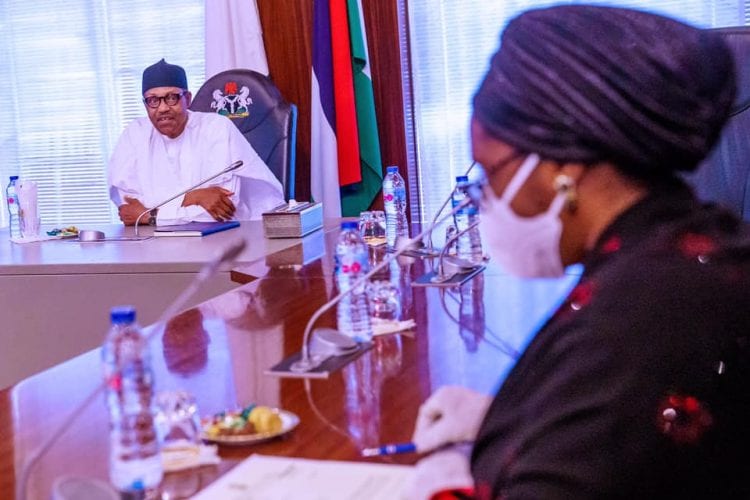
The federal government has proposed to borrow over N11 trillion to finance the proposed 2023 budget deficit, a development far above the stipulated threshold in the Fiscal Responsibility Act.
Zainab Ahmed, minister of finance, budget and national planning, said this on Monday while appearing before the house of representatives committee on finance to defend the 2023-2025 Medium Term Expenditure Framework (MTEF) and Fiscal Strategy Paper (FSP).
She said the government’s budget deficit is expected to exceed N12.42 trillion if the federal government keep the petroleum subsidy for the entire 2023 fiscal cycle.
Reeling out numbers to the committee, Ahmed said the 2023 budget proposal is based on two options.
On the first option, the deficit is projected to be N12.41 trillion in 2023, up from N7.35 trillion budgeted in 2022, representing 196 percent of total revenue or 5.50 percent of the estimated GDP.
Based on this, Ahmed said the federal government would spend N6.72 trillion on subsidy payments.
On the second option, if the federal government keeps subsidy payments till June 2023, the budget deficit would amount to N11.30 trillion, which is N5.01 trillion of the estimated GDP. In this option, the PMS subsidy is projected to gulp N3.3 trillion.
The minister further said the first option is not likely to be achievable based on the current trend, while the second option would require tighter enforcement.
She said the new borrowings would come from local and international sources. Ahmed said N9.32 trillion in new borrowings, comprising N7.4 trillion from domestic sources and N1.8 trillion from foreign sources, adding that the government is expected to generate N206.1 billion from privatisation proceeds and N1.7 trillion in multilateral project-tied loans.
On the two proposals, Ahmed said they have budget deficits far above the stipulated threshold in the Fiscal Responsibility Act.
The fiscal responsibility law provides a limit of 3 percent threshold for sustainability but the president can “exceed the ceiling if there is a clear and present threat to national security or sovereignty of Nigeria”.
Business
Five levies Nigerians pay for electronic transactions
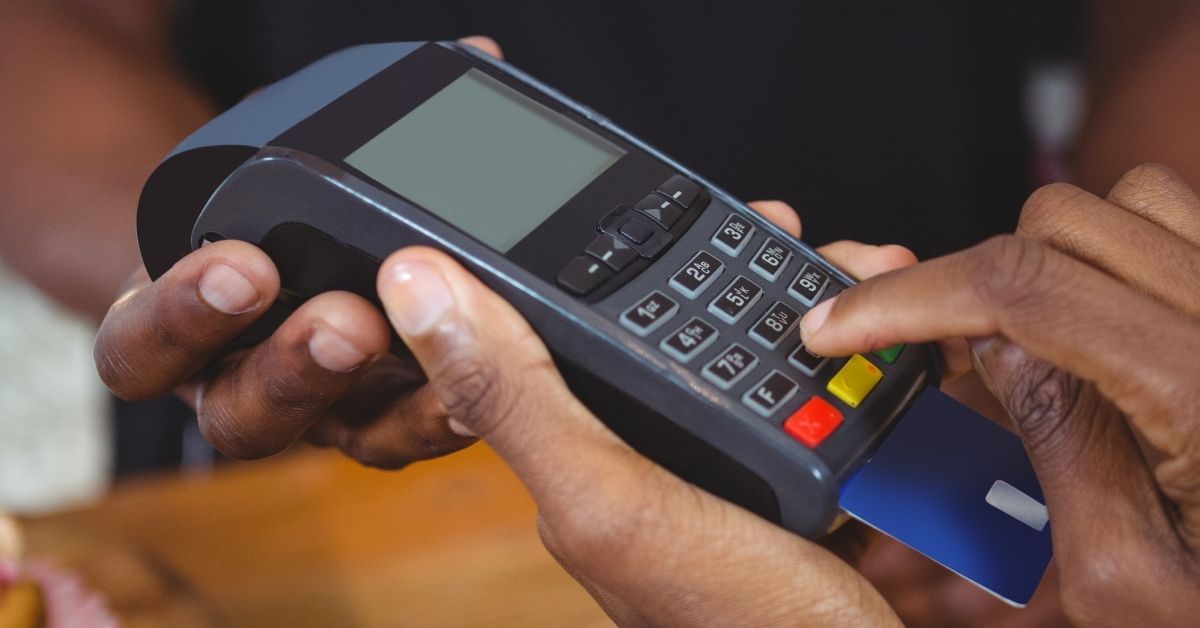
The Central Bank of Nigeria has ordered banks operating in the country to start charging a cybersecurity levy on transactions.
A circular from the apex bank on Monday disclosed that the levy implementation would start two weeks from today.
The circular was directed to all commercial, merchant, non-interest, and payment service banks, among others.
The circular revealed that it was a follow-up on an earlier letter dated June 25, 2018 (Ref: BPS/DIR/GEN/CIR/05/008) and October 5, 2018 (Ref: BSD/DIR/GEN/LAB/11/023), respectively, on compliance with the Cybercrimes (Prohibition, Prevention, Etc.) Act 2015.
However, the apex bank exempted loan disbursements and repayments, salary payments, intra-account transfers within the same bank or between different banks for the same customer, and intra-bank transfers between customers of the same bank from the levy.
Also exempted from the levy were inter-branch transfers within a bank, cheque clearing and settlements, Letters of Credits, and Banks’ recapitalisation-related funding only bulk funds movement from collection accounts, savings, and deposits including transactions involving long-term investments, among others.
Nigerians on social media are lamenting the new levy, which they complain has added to the multiple levies paid for electronic transactions. In this report, PUNCH Online highlights the five other transaction levies paid and the amount deducted on transactions between N1,000 and N1,000,000.
1. Cybersecurity levy
N5 is charged on the transaction of N1,000
N50 is charged on the transaction of N10,000
N500 is charged on the transaction of N100,000
N5,000 is charged on the transaction of N1,000,000
N50,000 is charged on the transaction of N10,000,000
2. Transfer fee
N10 is being charged on the transaction below N5,000
N25 is being charged on the transaction between 5,001 and N50,000
N50 is being charged on transactions above N50,000
3. Stamp duties
N50 is being charged on transactions between N10,000 and N10,000,000
4. Short Messaging Service (SMS)
N4 is being charged on each electronic transfer notification
NB: This is only applicable to customers on eligible electronic transactions. Those who opt for e-mailing services are not charged the same.
5. Value Added Tax
N0.75 is being charged on N10 transfer fee
N1.875 is being charged on the N25 transfer fee
N3.75 is being charged on N50 transfer fee.
Business
Naira depreciates at parallel market, appreciates at official window

The naira depreciated further to N1,430 at the parallel section of the foreign exchange (FX) market on Monday.
The FX rate represents a 4.38 percent drop from N1,370 traded on May 1.
Speaking to TheCable in Lagos, currency traders, also known as bureau de change (BDC) operators, put the buying rate of the greenback at N1,400 and the selling price at N1,430 — leaving a profit margin of N30.
At the official window, the local currency appreciated by 3.30 percent to N1,354.21 on Monday — from N1,400.40 on May 3.
During the trading period, the dollar exchanged for as high as N1,441 and as low as N1,285 according to data from FMDQ Exchange, a platform that oversees FX trading in Nigeria.
Meanwhile, Richard Montgomery, the British high commissioner to Nigeria, on May 5, said the new exchange rates policy under the present government and the leadership of the Central Bank of Nigeria (CBN) is attracting investors.
“You all know that the foreign exchange system in the past chased away investors because it is difficult to get your exchange done and you do not know whether you will be able to move money across borders,” Montgomery said.
The British envoy also said trade relations between Nigeria and the United Kingdom (UK) are about £7 billion.
Business
NERC reduces FX rate for calculating new tariff for Band A customers by 16.03%

The Nigerian Electricity Regulatory Commission (NERC) has reduced the exchange rate for calculating the current electricity tariff for Band A customers by 16.03%, from N1,463.3/$ to N1,277.8 from May to December 2024.
This is revealed in the commission’s Multi Year Tariff order (MYTO) for May to December 2024 released recently.
The NERC MYTO was reviewed following the appreciation of the naira in the foreign exchange market in the last one month.
Following statements by various electricity distribution companies on the reduction of electricity tariff for Band A customers on Monday, the NERC finally confirmed the drop, stating that it was due to appreciation of the naira since the last MYTO review earlier in the month of April.
The NERC approved the reduction of electricity tariff for band A customers from N225 per KWh to 206.8/KWh representing a drop of 8.1%.
Earlier in April, the NERC approved an over 200% hike in electricity tariff for band A customers from about N66 per KWh to N225/KWh, with significant changes in the exchange rate for calculation from N919/$ to N1,463, representing an N543.9 increase.
-

 Crime1 week ago
Crime1 week agoUK-based Nigerian doctor, Tijion Esho loses licences over sex for free Botox injections
-

 Entertainment24 hours ago
Entertainment24 hours agoKanayo introduces first son to filmmaking (Video)
-
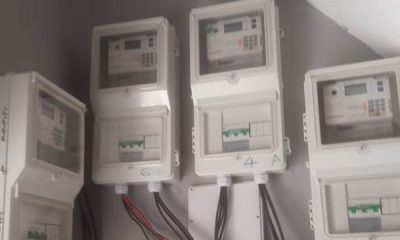
 Business23 hours ago
Business23 hours agoNERC reduces FX rate for calculating new tariff for Band A customers by 16.03%
-

 Business23 hours ago
Business23 hours agoNaira depreciates at parallel market, appreciates at official window
-
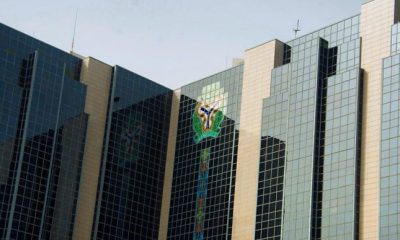
 Business24 hours ago
Business24 hours agoCBN directs banks to charge 0.5% cybersecurity levy on electronic transfer
-

 Crime24 hours ago
Crime24 hours agoNigerian vendor in UK, Musiliu Badejo jailed for selling toxic skin bleaching products
-
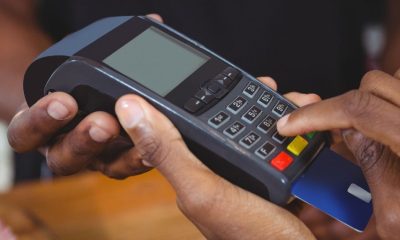
 Business18 hours ago
Business18 hours agoFive levies Nigerians pay for electronic transactions
-

 Entertainment17 hours ago
Entertainment17 hours agoPortable acquires luxury house in Lekki (Video)














